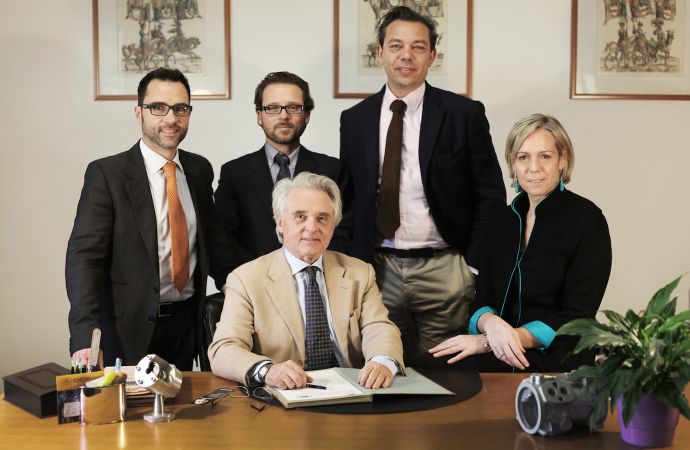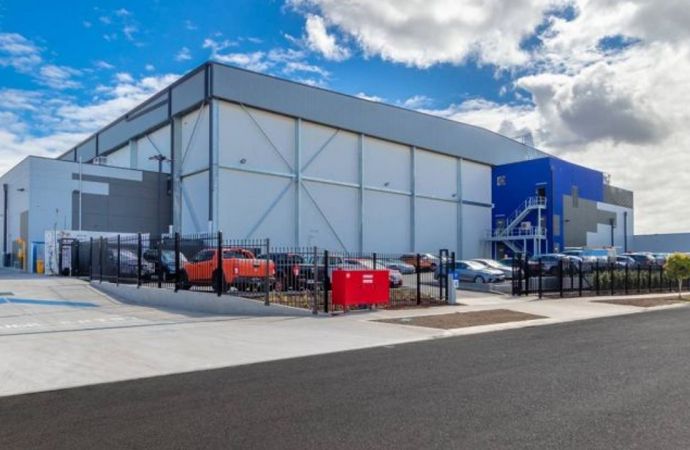Mario Dorin tells Accelerate Italy why the future is bright for natural refrigerants.

Mario Dorin (seated).
To mark Italian compressor manufacturer Dorin’s centenary year, Mario Dorin, who has held just about every position in the company in his long career there, tells Accelerate Italy why the future is bright for natural refrigerants.
With the global HFC phasedown mandated by the Kigali Amendment to the Montreal Protocol giving end users and manufacturers of HVAC&R technologies alike an extra incentive to chart a more environmentally friendly course, Officine Mario Dorin – a leading global manufacturer of compressors – is confident that the stage is set for natural refrigerants to grow exponentially.
“The modern HVAC&R sector is very much influenced by new regulation on acceptable gases. Nowadays, the EU F-Gas Regulation and similar regulations around the world are giving a great push towards the total transformation of the sector,” Mario Dorin, grandson of the first Mario Dorin – who founded the company in 1918 – told Accelerate Italy.
“The real challenge triggered by the HFC phasedown relates to the type of gas that will replace them,” Dorin says. “This is causing turbulence in the HVAC&R sector, for manufacturers and end users alike.”
A natural future
“The real alternatives are natural refrigerants, in all their forms (CO2, ammonia/NH3, hydrocarbons and maybe one day H20 too),” Dorin argues. “The innovative technology present today and the trend in new technological solutions are clearly rolling out the red carpet for developing these refrigerants in the next ten years,” he says.
Dorin already boasts over 35,000 CO2 compressors in operation worldwide (2016 figures). As these numbers grow, the company recognises the crucial importance of familiarising HVAC&R professionals with this refrigerant.
“Sustainable refrigeration – meaning environmentally sound refrigeration – is an excellent challenge as well as an exciting opportunity,” Mario says.
CO2 competing with ammonia
Amid competition from other natural refrigerants, Dorin is confident that CO2 is well placed to seize the initiative. “Current technology trends are giving a great push to the use of CO2 as a refrigerant,” Mario says.
He argues that CO2 performs better than ammonia in many applications and conditions. “It’s interesting for all large systems – where hydrocarbons are not useable and where NH3 sometimes can’t be used for safety reasons.”
The real alternatives are natural refrigerants, in all their forms (CO2, ammonia/NH3, hydrocarbons and maybe one day H20 too).”
– Mario Dorin
An industrial surge
“Commercial refrigeration is well-known to be on the road to CO2 ,” Mario says. He is confident that CO2 can dominate the industrial sector too. “Industrial refrigeration, which used to solely focus on ammonia, is now diverting its interest to CO2,” he argues.
It is this trend that motivated Dorin to design its wide range of CD500 and CD600 CO2 compressors for industrial applications. “For years, distribution and warehousing have been looking at CO2 refrigerant as the sole and most viable alternative to HFC refrigerants in large systems,” Mario argues.
Is Dorin proud of its Italian heritage? And are its Italian origins an important part of the brand? “Absolutely, yes – on both counts! Italy has a long and very important tradition in HVAC&R,” Mario says.
“Italy is also very sensitive to environmental issues.”
Click here to read the full version of this interview in Accelerate Italy magazine.
Related stories



